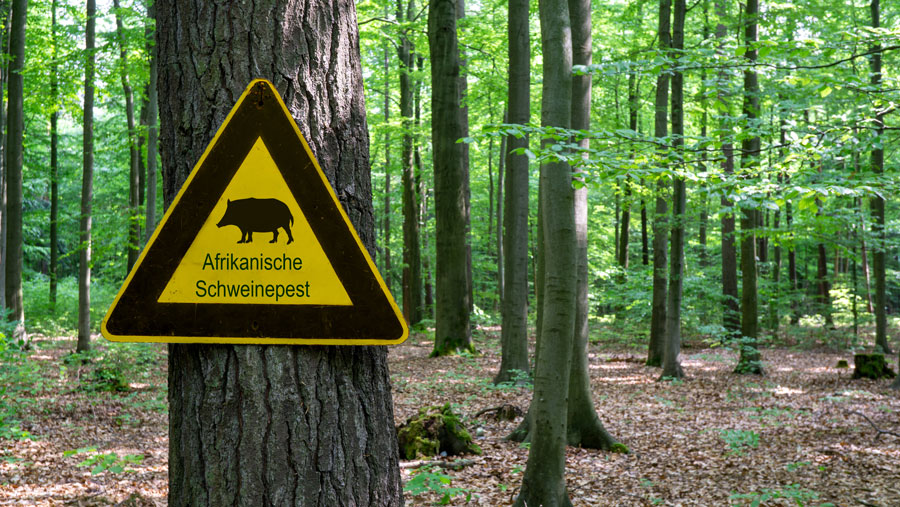UK to test African swine fever plan as virus hits Germany
 © Adobe Stock
© Adobe Stock Britain’s ability to contain and eliminate African swine fever (ASF) will be tested this week in a simulated outbreak of the disease.
The UK-wide “Exercise Holly” will involve officials from animal health bodies from all devolved regions in assessing the state of readiness in the event of an outbreak.
The 24-hour virtual exercise starts on Thursday 22 July and will look at testing plans, instructions and the structures employed in managing an outbreak.
See also: Welsh farmers call for bovine TB action as 10k cattle killed
Improvements will be recommended in a lessons-learned report that will be drawn up after the exercise is completed.
In a joint statement, the UK’s four chief vets said: “The risk of ASF arriving in the UK is ever-present and would have a devastating impact on our pigs and pig keepers if it ever reached our shores.
“We regularly test our contingency plans in this way to ensure that we are ready to respond to potential future disease outbreaks.”
Planning
The National Pig Association (NPA) said it had been involved with the planning team and helped shape the exercise.
Chief executive Zoe Davies said: “The exercise is really important to test our readiness and resilience.
“The NPA will be using the scenarios played out this week to test our own contingency plans and ensure that we are as ready as we can be.”
German ASF outbreak
The initiative has been given extra significance after ASF was detected in a domestic pig herd in Germany for the first time on 15 July.
German laboratory, the Friedrich-Loeffler-Institute (FLI), confirmed two farms were affected in the Brandenburg region, close to the eastern border with Poland.
The Brandenburg and neighbouring Saxony regions have recorded more than 1,200 cases in wild boar, but FLI stressed the cause of the domestic cases remained unclear.
The outbreaks were on an organic farm in the Spree-Neisse district and a smallholding at Märkisch-Oderland. All pigs on the two farms will be culled with restriction zones set up to control movements and pigmeat sales.
The institute warned pig producers that the virus was very stable and remained infectious in the environment for a long time.
The disease can be transmitted through raw or insufficiently heated meat products, contaminated feed, vehicles, clothing and tools, among other things, it said.
The UK government added that everyone should help stop the spread of ASF with simple actions.
How to cut ASF risk
- If you have visited ASF-affected areas in Europe, or elsewhere in the world, you must not bring any pork or pork products back to the UK.
- Dispose of leftovers or food waste in secure bins that pigs or wildlife cannot access.
- Farmers, the public and members of the food industry should practise high biosecurity standards, including never feeding catering waste, kitchen scraps or meat products to pigs – it is illegal and can spread the disease.
See African swine fever threat: What farmers need to know for more advice.
